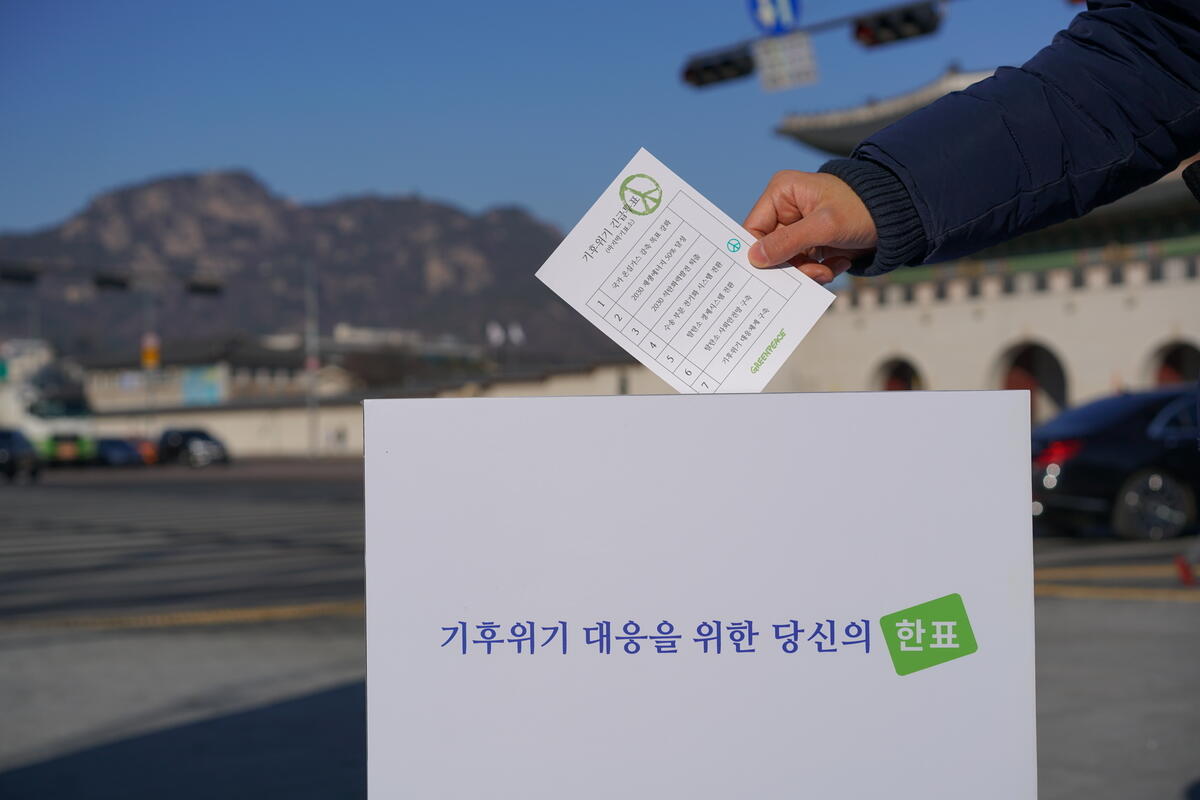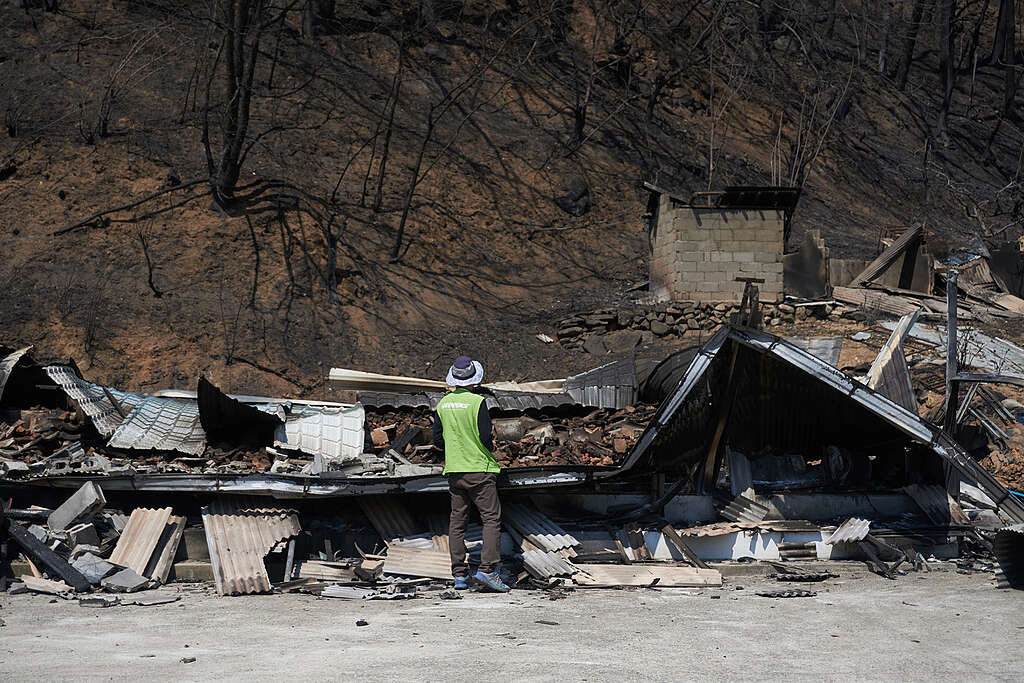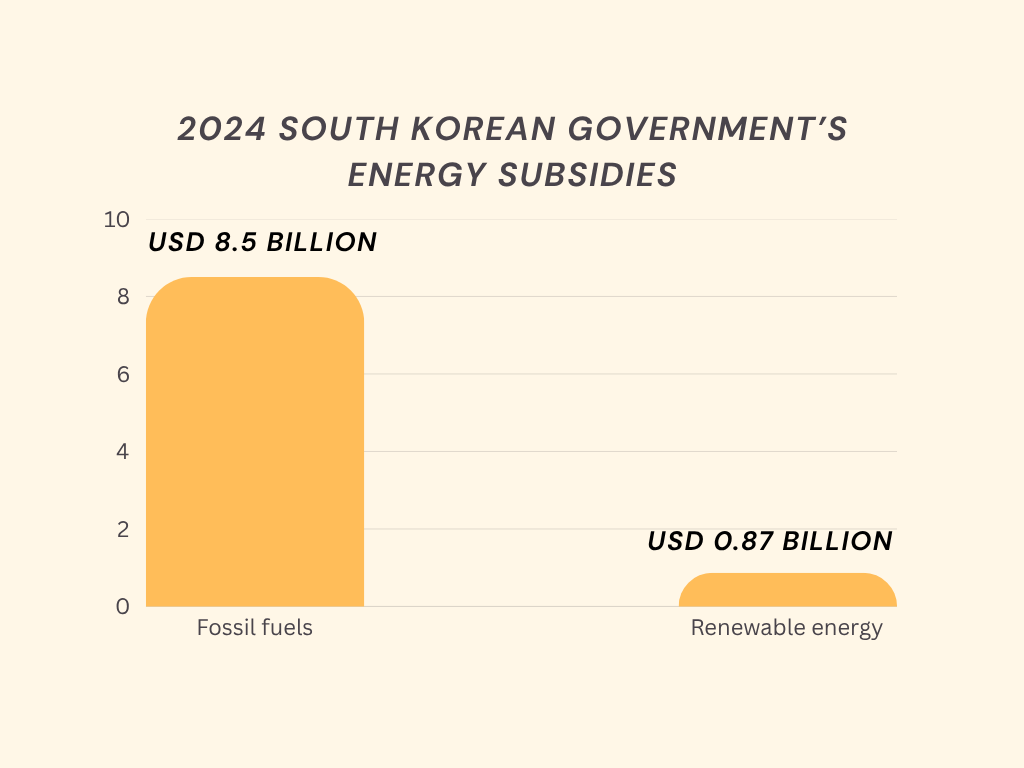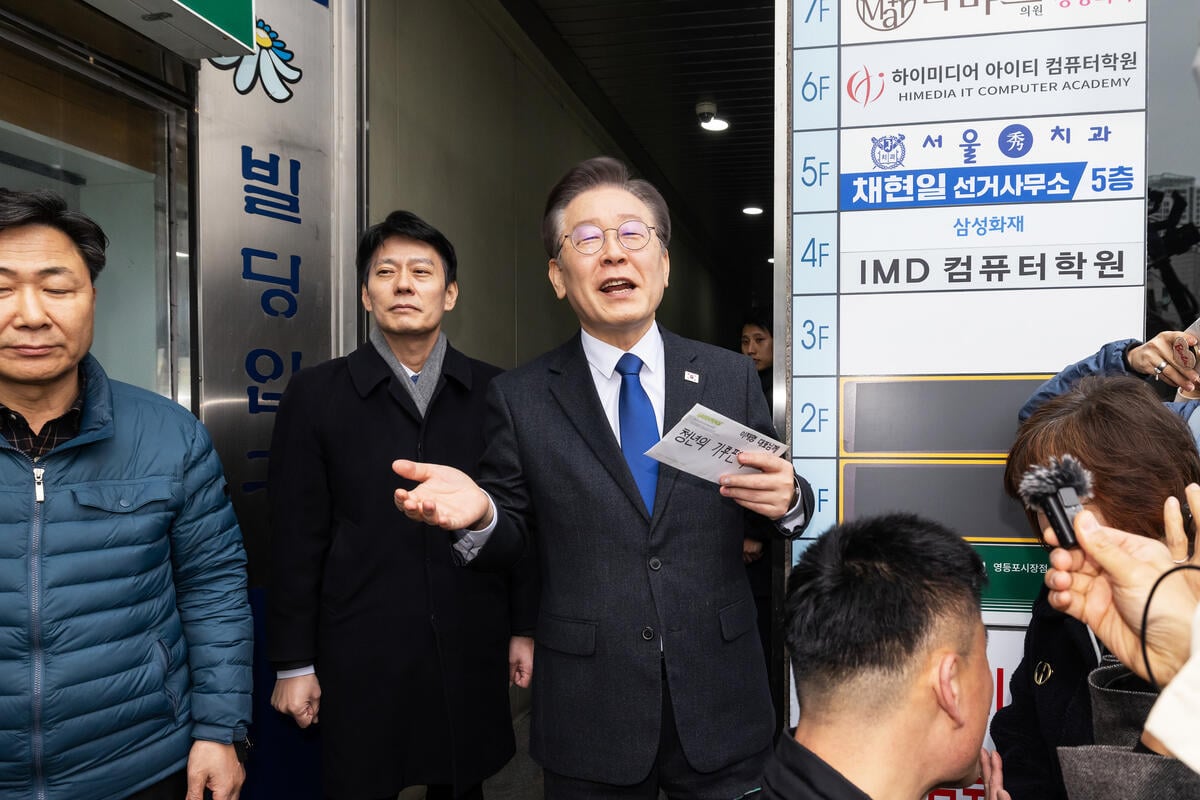Just within the past few decades, South Korea has grown fast – so fast that people call the country "Miracle on the Han River." We are proud of our strong culture, industry, and of our people power. But recently, we have been facing a crisis.
Since the end of last year, the South Korean economy has taken a dip with the previous president Yoon's declaration of martial law and impeachment. Koreans became extremely polarized and faced internal conflicts.
I asked myself, why do we still have so many problems, even though South Korea has grown so fast? It's because quick growth does not equal wellbeing for all. I am deeply anxious about what the future holds for me.

Yesterday, our presidential election concluded, with Lee Jae-myung elected as the new president. By looking at our past mistakes, I hope we can start to think about how to make a better, fairer future where we can live together without conflict and climate disasters.
Climate crisis response plan with no tomorrow
The world is suffering from the climate crisis. This year, wildfires in California burned many homes. In Australia, entire towns were lost in floods. And in my own country, we had the worst wildfire in our history. Many people died, and the land was left hurt.
What matters more than rapid growth is living together in harmony. To have an economy where nature and people are happy requires us to face our limits. This means recognizing that we are all temporarily living on this Earth and remembering the dangers of unlimited growth. In this piece, I suggest we imagine these limits through the "carbon budget." It was an important concept that Yoon Suk-yeol, the impeached president, seemed strangely eager to ignore.
Reducing carbon is very important when it comes to the climate crisis. The Earth's temperature is rising because of carbon, and once the temperature goes over 1.5°C, we will face even bigger climate change disasters, ecosystem collapses, and human life risks than we experience now. So, what is the limit? How much carbon can we emit if we want to keep the 1.5°C goal?

As I said earlier, Yoon government's plans ignored the carbon budget, which is how much greenhouse gas we can produce while keeping the global temperature under 1.5°C. For example, according to the emissions stated in the basic carbon neutrality plan, South Korea will exhaust more than 90% of its carbon budget by 2030. It's hard to believe in this logic of emitting carbon to our full potential until 2030 and then miraculously reducing emissions starting in 2031.
South Korean and other governments' purposeful inaction and their consequences will be borne entirely by the younger and future generation who will have to continue to live in the climate crisis era. In that sense, the Yoon's government chose present convenience at the expense of the younger generation's long term-safety.
Moreover, the reality is, these plans sacrificed not only the future but also the lives of people living in the present. Last month, the largest wildfire in the history of South Korea took the lives of countless people or their homes. Climate disasters based on extreme weather are becoming more intense and frequent as the climate crisis worsens.
The government subsidized industry is destroying our future
Everyone now knows that fossil fuels emit greenhouse gases and contribute to rising global temperatures. Yet, South Korea is still reluctant to give up fossil fuels. In 2024, South Korea spent nearly 10 times more money on fossil fuels than on renewables. Is investing in fossil fuels for short-term efficiency really helping to build a safe future for us?

According to media reports, in both 2022 and 2023, tax revenue decreased by more than KRW 5 trillion won due to the oil tax cut. This deficit is 10 times more than the 2021 amount. The tax deficit is harmful in that it can ultimately lead to a reduction in the climate crisis response and social welfare budget.
Direct and indirect subsidies for fossil fuels, such as oil tax cuts, have a detrimental effect on the just transition of the fossil fuel industry. In the era of climate crisis, the fossil fuel industry will reach an inevitable tipping point. As global temperatures rise and all life is threatened, we will have no choice but to abandon fossil fuels, whether we want to or not.
If we continue to invest in fossil fuels, such choices may ruin the lives of the youth like us and the future generations beyond us.
Solutions: We will find a way. We always have.
South Korea is currently facing a difficult time. But the fact that the previous president-who declared martial law and put citizens in danger-has been forced to step down thanks to people power, and that people have been able to choose a new leader, should be remembered as a victory for democracy. As President Lee Jae-myung works to solve these many challenges, I hope he will not repeat the mistakes of the past. A sustainable future cannot only be built through efficiency and growth alone, but also through a path of inclusion.

So here are some perspectives I would like to share with our new president.
1. I hope President Lee is willing to learn from our people, including his former rivals. One candidate in this election, for example, advocated for a just transition. As we face a climate crisis that requires everyone's participation, the question of jobs for workers in the shrinking fossil fuel industry must become central.
2. Adopt wealth tax. Wealth taxes were also mentioned by one of the candidates during this presidential election. Considering that the wealthiest 10% are responsible for more than half of global carbon emissions, we must think about policies that hold them accountable.
3. The president can also learn from his past proposals. In 2022, he advocated for a carbon tax-a policy that remains undeniably important today. A carbon tax could create revenue for citizen welfare and the transition to renewable energy while also reinforcing the responsibility of major polluters. It is disappointing that this idea was not a part of his platform in this election. Since the climate crisis has worsened since 2022, our climate policies must not grow weaker but stronger.
Beyond redirecting fossil fuel subsidies toward welfare and climate solutions, as well as developing policies based on carbon budgets, there are many ideas for action. To make these ideas real, the power of citizens will become more important than ever. Great solutions have always been born out of great crises. That's why I believe in this sentiment:
It won't be easy - but we already know: We will find a way. We always have.
Guma Shin is climate & energy campaigner at Greenpeace East Asia Seoul.
Original blog in Korean: "Despite extreme weather, strange events happened under the Yoon administration" (Some content has been modified.)






